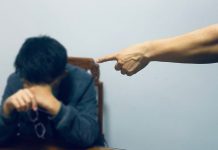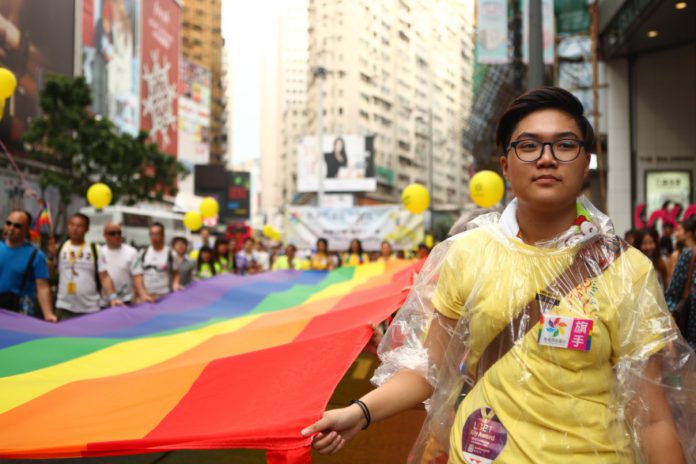Greater visibility hasn’t stamped out discrimination, now the LGBT community faces a blacklash
By Eunice Ip, Maggie Suen
Raymond Chan Chi-chuen realised he was different from other boys when he was in primary school.
“I had two uncertainties as many others had at that time. First, am I the only one? Second, if I’m not the only one, how could I seek out others?” recalls Hong Kong’s first op
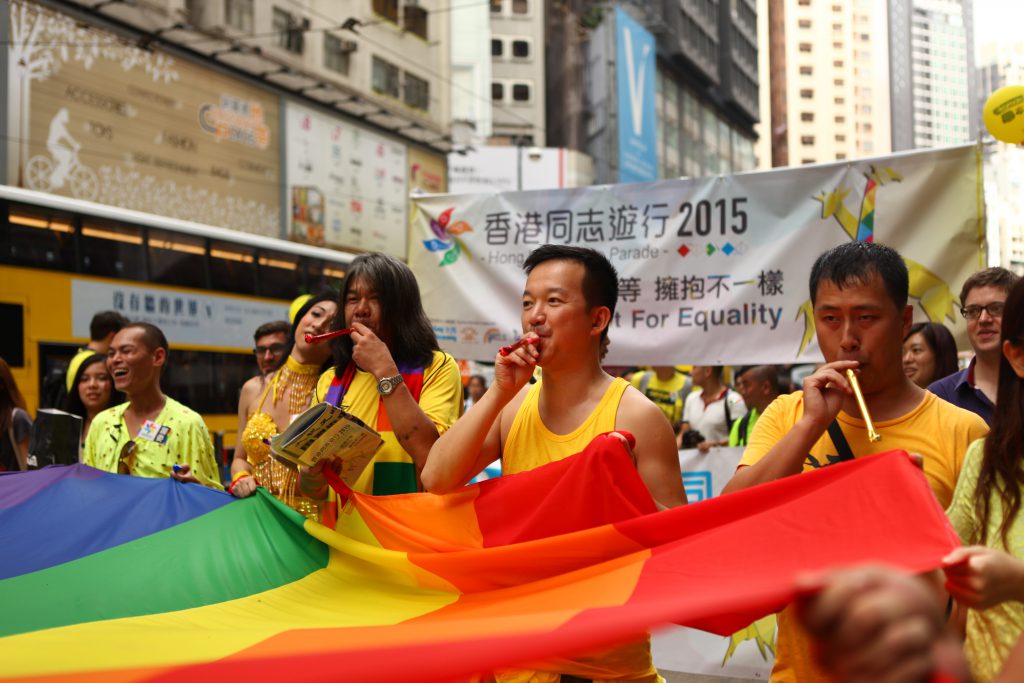
enly gay legislator. At the time, a child of his age had no concept of what it meant to be gay, lesbian, bisexual or transgender (LGBT).
“Students today do not have those confusions. By simply searching on the internet, they can access texts, pictures, videos [regarding LGBT], as well as forums and dating sites,” says Chan.
Chan came out in 2012, the same year that pop singers Anthony Wong Yiu-ming and Denise Ho Wan-see did. Apart from these high-profile figures, recent years have also seen more realistic and positive portrayals of gay characters in mainstream films and television programmes, such as ViuTV’s acclaimed Margaret and David – Green Bean series.
The increased visibility of LGBT in public life and popular culture means individuals no longer need to feel alone. But visibility itself does not necessarily create a more favourable environment for being more visible. Young LGBT can still face a harsh reality.
“There was a TV programme about gays. My father disliked it,” says 22-year-old Michael Li Hon-ting. Li will openly talk about his sexual orientation if anyone asks but he still keeps it from his family.
Li was not sure of his sexual orientation until he started a relationship with a girl in Form Four of secondary school. Until then, he had told himself he was bisexual rather than gay. “There’s at least half-normality when you say you are bisexual. This matches with social norms more,” Li says.
After he graduated from secondary school, he plucked up the courage to tell his teacher. The teacher, who was a Catholic, found it hard to accept. “She asked me to think clearly [whether I really love guys],” says Li. She also attributed the emergence of homosexuals to the increasingly open discussions about LGBT in society.
Li observes that university campuses have a relatively free environment where LGBT individuals can talk openly about their issues, but secondary school students are still reluctant to say or reveal much.
Charles Chan, a 17-year-old international school student, agrees. “It’s a taboo at school,” he says. Chan moved to Hong Kong in 2011 from the Philippines, where he had a miserable time in primary school.
“I was quite feminine. I would do those hand gestures, and run weirdly. So I was called gay or stuff like that,” he says. “I didn’t really have friends at primary school.”
Chan was under great pressure as he hid his identity and disguised his orientation, all the while not daring to seek help from teachers or social workers. He only opened up to intimate friends who gave him their support.
He was also afraid to tell his family because his parents are traditional Asians. Chan says his family once came across a transgendered person in the street. His parents made fun of the person and admonished his little brother, “don’t be like that.”
“I had sunglasses on, so I was just crying throughout the whole thing, and they just didn’t realise I was crying,” recalls Chan.
This April, it was Chan’s mother who was crying when she guessed that her son was gay. First, his parents pressured him not to tell others but now he feels they have gradually accepted it.
Chan plans to go to university in the United States, which he believes has a more gay-friendly environment. To him, Hong Kong is still not ready for greater LGBT visibility.
“I can’t really talk freely because I would be discriminated against,” he says.
As LGBT visibility has increased in Hong Kong, so have fears of a homophobic backlash. In 2005, the government met LGBT groups to discuss the possibility of legislating against discrimination on the grounds of sexual orientation. This prompted the conservative Hong Kong Alliance for Family to publish a four-page advertisement opposing any legislation in Ming Pao. The Society for Truth and Light also organised a letter-writing campaign to protest against it.
It was against this background that Hong Kong’s first LGBT parade was held on the International Day Against Homophobia in May that year.
“This was the first time homosexuals had been discriminated against in such an outspoken way, it had never been so obvious before. It was a real blow to Hong Kong’s LGBT community,” says Yeo Wai-wai, a committee member of Hong Kong Pride Parade.
Only 300 people turned up for the first parade. Masks were prepared for participants but they decided not to wear them. Three years later, the first official Pride Parade involved more than 1,000 participants. In 2015, the number had increased nearly tenfold to 9,500.
At the beginning of this year, the Equal Opportunities Commission (EOC) released a comprehensive report, “Study on Legislating against Discrimination on the Grounds of Sexual Orientation, Gender Identity and Intersex Status”. The study indicates public support for anti-discrimination legislation has increased from 28.7 per cent to 55.7 per cent in the 10 years since the “Survey on Public Attitudes towards Homosexuals” was conducted by the Home Affairs Bureau in 2006.
At the same time, 41 per cent of those who had contact with homosexuals thought the discrimination experienced by LGBT people was either serious or very serious, compared with just under 30 per cent in 2006.
Yeo says that despite greater acceptance of the LGBT community, discrimination is still widespread. She says she was rejected for a job at an advertising agency when the director learned she was a lesbian.
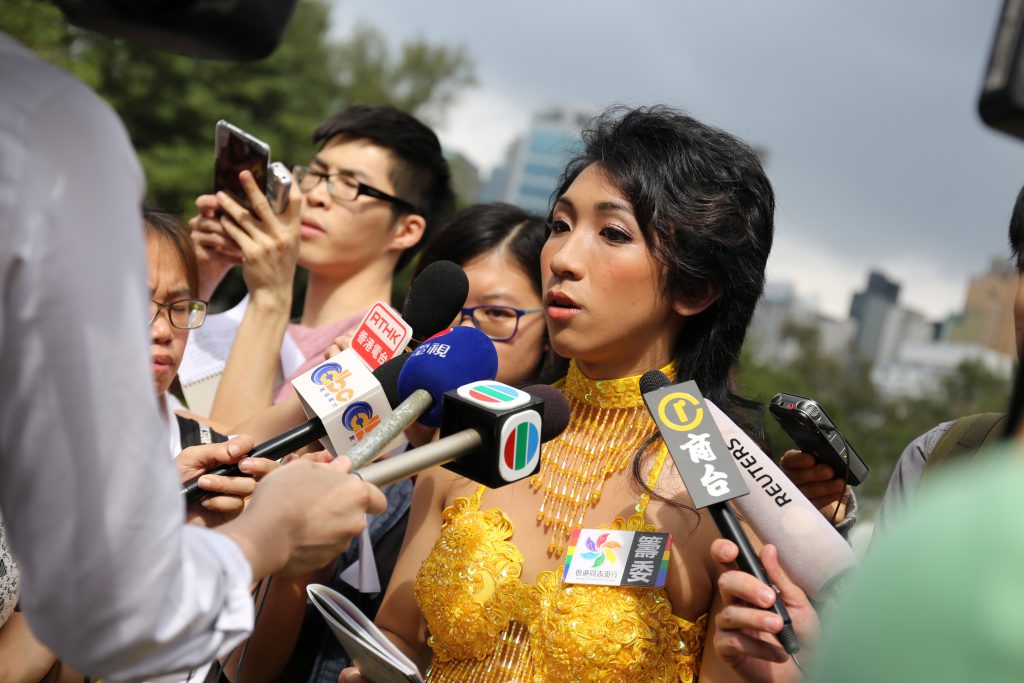
Tin Fung, a representative of Rainbow of Hong Kong, the only LGBT Community Centre in Hong Kong, says: “If you choose to be frank [about your sexual orientation or gender identity], you will cause more trouble for yourself in Hong Kong society.”
Tin, who is now 27, studied education at university. He says his professor at the time warned him not to disclose his sexual orientation during his internship at a secondary school. The professor said he might not be able to graduate if he was rejected by the employer because of his gay identity. Tin felt his sexual orientation should not have any bearing on his ability to graduate and that was a case of discrimination.
Both Tin and Yeo, principal organisers of Hong Kong Pride Parade, believe LGBT individuals should not have to hide.
“In this world, if LGBT people are not allowed to reveal their sexual orientation, it’s no different from putting the Jews in concentration camps,” says Yeo.
Despite the heightened public awareness and support for LGBT, opposition seems to be consistent over the years. The 2006 Survey on Public Attitudes Towards Homosexuals found 34.5 per cent of the respondents opposed anti-discrimination legislation; the percentage is 34.8 per cent this year.
Some opposition groups have been more vocal about LGBT issues, including the anti-gay-rights organisation, Family School Sexual Orientation Discrimination Ordinance Concern Group (which uses the perhaps unfortunate acronym SODO). The group frequently criticises LGBT people on Facebook and accuses them of creating health hazards, spreading incorrect values, and disturbing social order.
“I have my own values. You should let me speak,” says Roger Wong Wai-ming, 52, convener of the Family School SODO Concern Group. According to Wong, the anti-discrimination law would hinder the freedom of speech granted in the Universal Declaration of Human Rights.
However, the lack of legislation means LGBT people are vulnerable to hate speech. Last year, legislator Raymond Chan Chi-chuen uploaded a two-minute video onto YouTube. It showed two women mocking Chan’s sexual orientation, calling him a “rubbish councillor” and “a mad dog” on the MTR. They abused Chan using sexually explicit and insulting vulgar language and claimed they had the right to criticise him as taxpayers.
“Even if I totally accept my gay identity, I felt terrible when being verbally abused for three minutes and without grounds,” says Chan.
It was not the only time he has encountered harassment in public nor was it the worst. During the campaign period for this year’s Legislative Council election, one or two homophobic passers-by would call out “faggot” when they passed his campaign stall in the street. He had to call the police when one woman hit him.
Although he describes his public coming out as a “passive” one, Chan is glad it happened. A week before voting day in the 2012 Legislative Council election, a reporter asked him about his sexual orientation. He decided to answer it truthfully and the report was published the day after he won his seat.
“I would say this coming-out is the gift from God, as this paves the easiest path for me [to fighting for LGBT rights]. If I hadn’t come out, I’m not sure whether I would strive for equal rights for LGBT people,” says Chan.
In spite of the subsequent hostility and backlash, Chan thinks his coming out has allowed him to be a role model among the LGBT community. He says a parent once showed her appreciation. She said her son was homosexual, and that she originally thought this was something inferior and negative. Chan made her change her mind and see that gays can have great achievements and contribute to society.
A decade after the government began looking into the possibility of legislating against anti-LGBT discrimination, there is still a long way to go. The 2013 Policy Address states the government “has no plan to conduct consultation” on the anti-discrimination law as “it is highly controversial”.
Suen Yiu-tung, the principal investigator of this year’s EOC report, says the issue of legislation was raised as early as 1995 in the legislative council but the government has been reluctant to start the legislative process. He says it uses the excuse that Hong Kong is not ready for anti-discrimination legislation.
“It is because of controversy that we need to protect LGBT groups; it is because of the lack of a consensus on the definition of discrimination that we need anti-discrimination law,” says Suen, who is an assistant professor of the Gender Studies Programme at the Chinese University of Hong Kong.
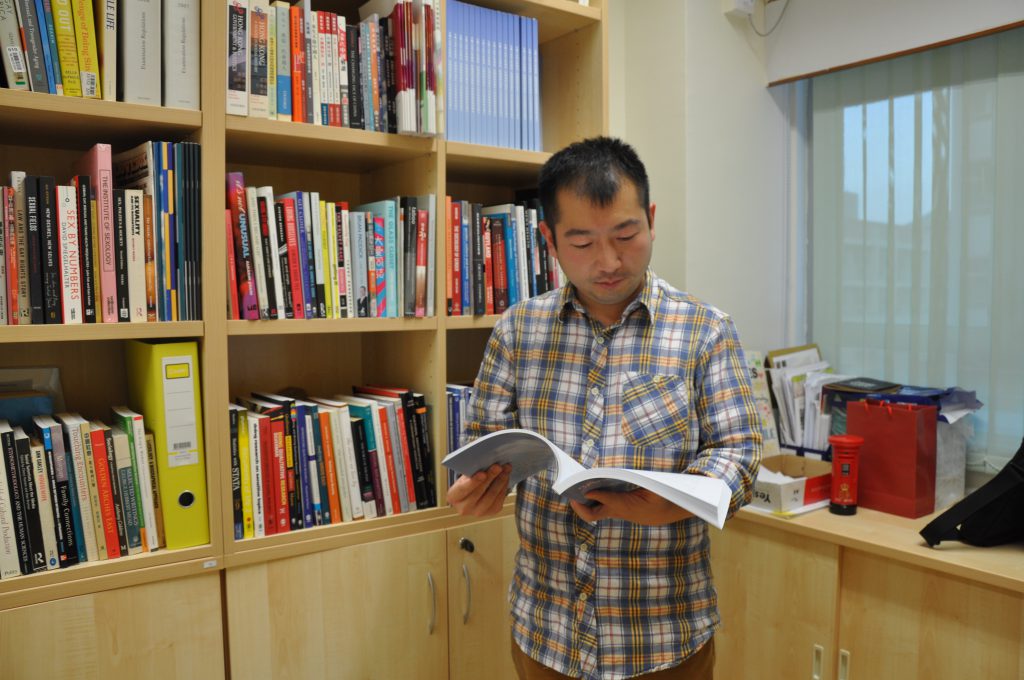
He also rejects the freedom of speech arguments against legislating that have been put forward by some conservative Christian groups.
“Freedom of speech should not be abused to harm any groups in society,” says Suen. He stresses that any proposed legislation would only protect LGBT people from discrimination in four basic domains – employment, education, provision of goods and services, and disposal and management of premises.
However, he is aware that what anti-gay groups are most concerned about is that the legislation would mark the start of a slippery slope that would lead to rights that they find unacceptable for religious or moral reasons, such as the right of people of the same sex to marry.
Although he disagrees with the arguments against anti-discrimination legislation, Suen thinks that a backlash against LGBT rights is to be expected given the increased visibility of the LGBT community in recent years. But he believes it is important that LGBT people do not hide or go underground in the face of a potential backlash.
As the debate over discrimination rages on, Suen says the point to remember is that, “everyone should have the right to be protected from discrimination rather than to discriminate against others.”
Edited by Cindy Gu












